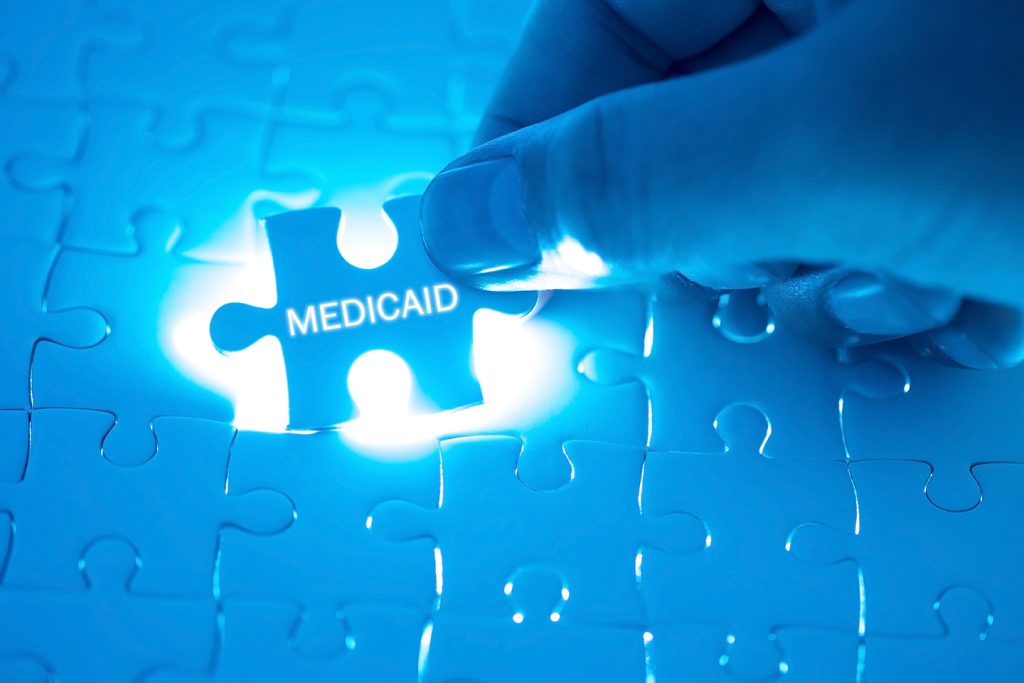Medicaid rules provide for three ‘safe harbor’ trusts that are notable exceptions to the general trust rules.
1 The first, referred to as a ‘(d)(4) (A)’ or ‘pay-back’ trust, must be created by a parent, grandparent, guardian or court for the benefit of a disabled individual under age 65. It may be funded with the disabled individual’s own funds, and the trust property will not be considered available in determining the disabled individual’s eligibility for Medicaid benefits as long as the trust provides that at the beneficiary’s death the state will be reimbursed out of any remaining trust funds for Medicaid benefits paid on behalf of the beneficiary during his or her life.
2 The second safe harbor trust, often referred to as a ‘(d)(4)(B)’, ‘Miller’ or ‘Income’ trust, permits nursing home residents in states with an ‘income cap’ to shelter excess income and still qualify for Medicaid benefits.
3 The third safe harbor, often referred to as a ‘(d)(4)(C)’ or ‘pooled’ trust, is similar to a (d)(4)(A) trust. The differences are as follows: (1) The trust must be administered by a not-for-profit corporation for the benefit of more than one beneficiary, though it can set up separate accounts for each beneficiary; (2) The disabled individual himself or herself may fund the trust, as well as his or her parent, grandparent or guardian, or a court; (3) An alternative to reimbursing the state for Medicaid expenditures made on the beneficiary’s behalf upon his or her death is to have the funds remain in the trust for the benefit of its other beneficiaries.
Estate Recovery
The rules described above limit who may receive Medicaid coverage of nursing home care. But they are not the whole story. Once someone receives Medicaid benefits, whether for nursing home care or for any other health care cost after the age of 55, the state will seek reimbursement from his or her estate after death. However, no recovery can take place until the death of the recipient’s spouse, or as long as there is a child of the deceased who is under 21 or who is blind or disabled. (How this deferral of estate recovery works in practice depends on the state in question.)
In most cases, Medicaid beneficiaries don’t have any estate to speak of; otherwise they wouldn’t have been eligible for Medicaid in the first place.
However, in many states, Medicaid beneficiaries can keep their homes. They also could inherit money unexpectedly (or through poor planning) or be the beneficiary of a personal injury claim, leading them to have money at the end of their life despite being impoverished before then.
In those cases, whether the state will successfully recover against the Medicaid beneficiary’s estate depends on how the property is held and on the particular state’s laws. All states seek recovery against the probate estate of the deceased Medicaid beneficiary. Some also seek recovery against non-probate property in which the deceased had an interest, such as jointly-held real estate, life insurance and trust property (see our separate Guide on The Probate Process for a discussion of the difference between the probate and non-probate estate). With proper planning, most individuals can avoid recovery against their estates.
Medicaid liens are often confused with estate recovery. While estate recovery only occurs at death, typically if the Medicaid beneficiary is permitted to keep his or her home the state will place a lien on it to be paid back if the house is sold while the beneficiary is alive. Exceptions to the lien exist, substantially paralleling the exceptions to the transfer penalty for giving away the home. Thus, no lien may be applied if a spouse, disabled or minor child, or caretaker child is living there. People often confuse these exceptions as protecting the house from estate recovery as well.
They don’t. To assume they will can be a costly error. While there is a deferral of estate recovery during the life of a surviving spouse or until a minor child reaches age 21, as described above, this only delays the estate recovery. States, however, are supposed to waive estate recovery in the case of ‘hardship,’ which they are free to define. RLF

